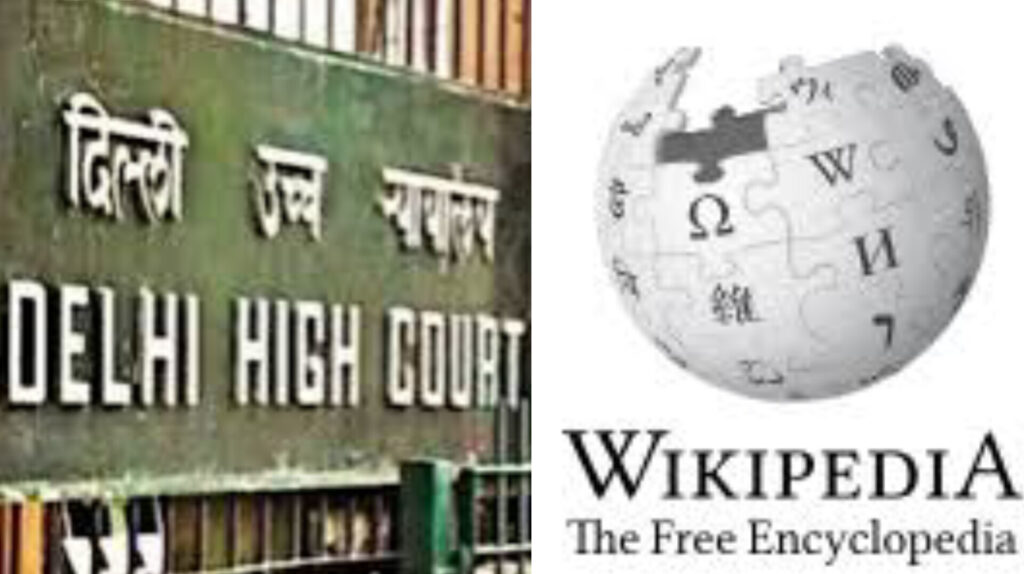Anushri Joshi
The Delhi High Court has expressed serious apprehensions about Wikipedia’s open editing model, terming it “dangerous” due to the ease with which any user can edit content. This observation came during a hearing on a defamation lawsuit filed by Asian News International (ANI) against the online encyclopaedia, alleging that edits made to ANI’s Wikipedia page depicted it as a “propaganda tool” for the Indian government.
Presiding over the matter, Justice Subramonium Prasad voiced deep concern over Wikipedia’s architecture, which allows users unrestricted access to edit public pages. “Anybody can edit a page on Wikipedia? What kind of page is this if it is open to anybody (for editing)?” he questioned, highlighting the potential risks of unchecked information dissemination on a globally accessible platform.
ANI’s counsel argued that the page’s open editing framework effectively transformed it into a repository of defamatory content. The petition emphasizes that Wikipedia’s portrayal of ANI as a biased media entity damages its reputation and misleads the public by presenting such information as factual. ANI further contended that this unrestricted editing model risks undermining individuals’ and entities’ reputational rights.
Wikipedia, represented by Senior Advocate Jayant Mehta, defended its system, distinguishing it from social media platforms by asserting that all additions require thorough referencing. Mehta argued, “Wikipedia is not like Facebook; it is an encyclopaedia. Every information is required to be cross-referenced to ensure credibility.” He stressed that the page’s credibility stems from its collaborative model, which compels users to cite legitimate sources.
The High Court had previously directed Wikipedia to disclose the identities of editors responsible for the alleged defamatory content, though the Wikimedia Foundation has appealed this order, arguing that such disclosure conflicts with its operational principles. The issue is now pending before a Division Bench for review.
In the ongoing proceedings, ANI has sought the immediate takedown of specific sections from its Wikipedia page, which it claims continue to carry defamatory edits. The Court, expressing exasperation at the “dangerous” model of Wikipedia, has adjourned the case for further hearing on October 28, while directing both parties to submit additional notes on Wikipedia’s functional architecture and the safeguards in place to prevent defamatory content.
This case underscores the pressing debate on Wikipedia’s editorial policies, particularly in the context of legal accountability and reputational rights. The outcome may have far-reaching implications for online platforms that depend on user-generated content while attempting to maintain credibility and avoid misuse.
The Court has schedule the next hearing for the present matter on 28th October 2024.
Case Name: Asian News International (ANI) v. Wikimedia Foundation
Bench: Justice Subramonium Prasad

